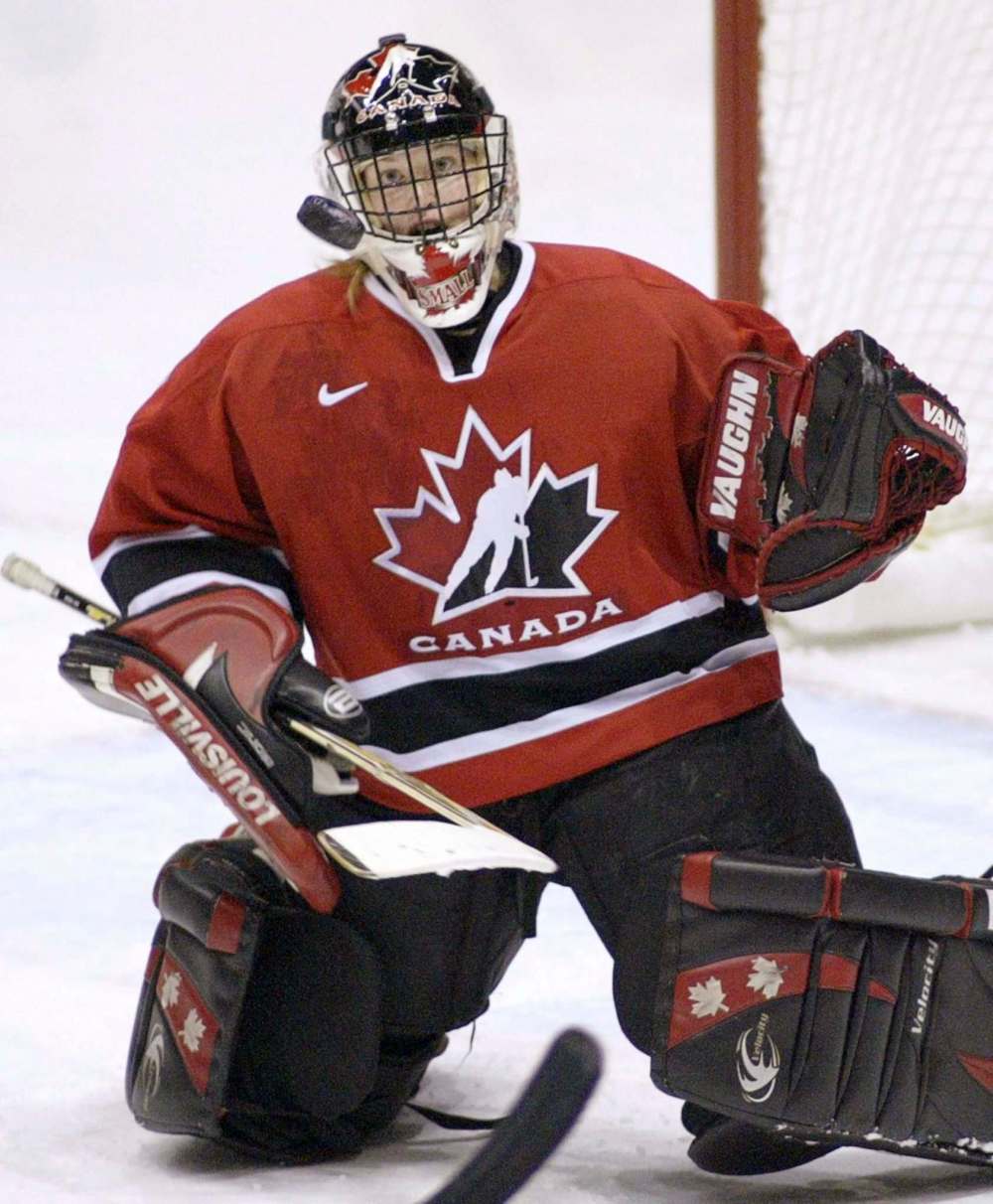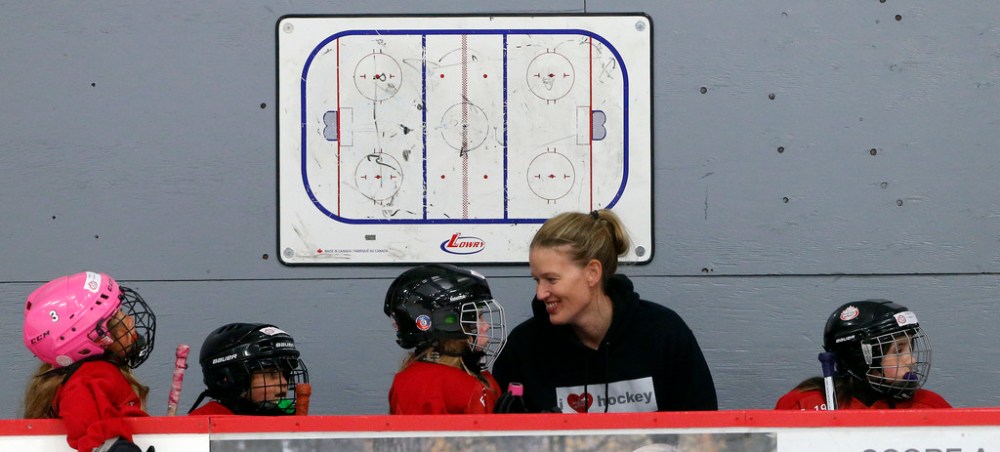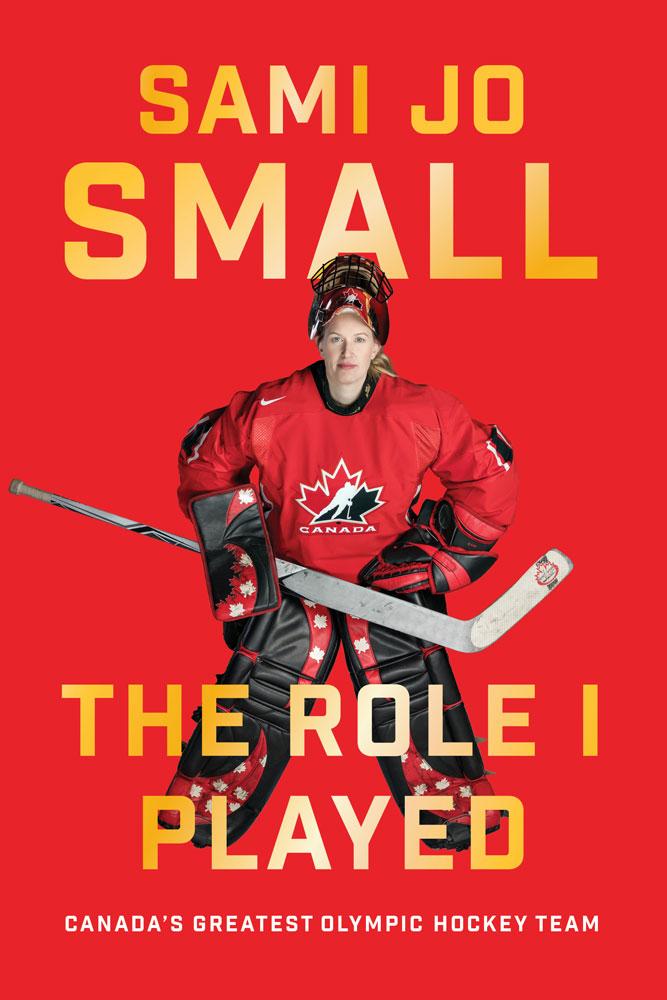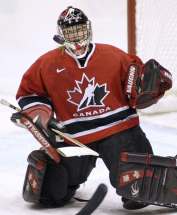Small still on journey to acceptance Former national team goaltender's book delves into disappointment of being backup in Olympic gold-medal game
Read this article for free:
or
Already have an account? Log in here »
To continue reading, please subscribe:
Monthly Digital Subscription
$0 for the first 4 weeks*
- Enjoy unlimited reading on winnipegfreepress.com
- Read the E-Edition, our digital replica newspaper
- Access News Break, our award-winning app
- Play interactive puzzles
*No charge for 4 weeks then price increases to the regular rate of $19.00 plus GST every four weeks. Offer available to new and qualified returning subscribers only. Cancel any time.
Monthly Digital Subscription
$4.75/week*
- Enjoy unlimited reading on winnipegfreepress.com
- Read the E-Edition, our digital replica newspaper
- Access News Break, our award-winning app
- Play interactive puzzles
*Billed as $19 plus GST every four weeks. Cancel any time.
To continue reading, please subscribe:
Add Free Press access to your Brandon Sun subscription for only an additional
$1 for the first 4 weeks*
*Your next subscription payment will increase by $1.00 and you will be charged $16.99 plus GST for four weeks. After four weeks, your payment will increase to $23.99 plus GST every four weeks.
Read unlimited articles for free today:
or
Already have an account? Log in here »
Hey there, time traveller!
This article was published 06/10/2020 (1890 days ago), so information in it may no longer be current.
It was the biggest game of her life and Sami Jo Small had no doubt in her mind that she’d be between the pipes.
But the night before the Canadian women’s hockey team took on the Americans for gold at the 2002 Salt Lake City Olympics, the Winnipeg native was informed she’d be on the bench and Kim St-Pierre would be getting the start in goal.

“We just played Finland in the semifinal game and Kim St-Pierre, who I have the utmost respect for and is an incredible goaltender, (was playing). We were down 3-1 going into the third period and I almost got put into the game. So, I felt like after the game when we came back and won, that the next one was going to be mine. At that moment we had sort of rotated back and forth and it never really dawned on me that I wasn’t going to get to play… It’s a hard juxtaposition of feeling like you just want to crawl up into a little ball and go home versus you now have to accept this other role.”
In Small’s recently released memoir, The Role I Played: Canada’s Greatest Olympic Hockey Team, an entire chapter is devoted to that moment and her journey toward accepting the backup job on the grandest stage of them all. She references experiences such as when she won a provincial volleyball title at Collège Jeanne-Sauvé and two of her best friends didn’t get to play, but yet, they cheered until the end as things that helped her look at the situation more positively.
“I think writing about it certainly helped. I think any time you put your heart and soul into something and you don’t get it, it’s hard. It’s like going through a death, a death of a dream, essentially,” said Small, now 44.
“When I was writing it, it was difficult. I feel bad for my husband, as I’d be cooking dinner and I’d be so upset all over again or I’d be mad. He’d think he had done something, but really, it was just a game that I didn’t get to play 18 years ago. It still evokes those emotions for me. After I wrote the manuscript, I had long conversations with my coaches that made those decisions. I have myself since then become a coach and administrator within sport and perspective certainly allows you to get over and grieve, but it also gives you empathy for others that are going through the same thing.”
The Salt Lake memory (Canada defeated the U.S. 3-2) will likely remain forever, but so will the gold-medal games in Nagano in 1998 (U.S 3, Canada 1) and Turin in 2006 (Canada 4, Sweden 1) as Small didn’t get the nod in those momentous games, either.
The three-time Olympian and four-time gold-medal winner at the world championships, did, however, spend more than a decade on the national team and made 51 starts.
It’d be impossible for Small to remember all the saves she made, or didn’t make, but luckily, whenever one of her games was on television, Small’s mother made sure to record it on VHS. Small, who spent a decade on the book, went through hundreds of tapes to make sure she had all the facts right.
“I think any time you put your heart and soul into something and you don’t get it, it’s hard. It’s like going through a death, a death of a dream, essentially.”
– Sami Jo Small
Small lives in Mississauga, Ont., with her husband Billy Bridges, a member of the national sledge hockey team, and their four-year old daughter Kensi. Small, who had a scholarship to Stanford to throw discus and javelin before her hockey career took off, works as a professional speaker and she said writing a book felt like the next step.
“Somebody reading the book may never be asked to sit on the bench in an Olympic final, but they are put into roles perhaps they don’t feel they deserve or want to be in, or are maybe not given the reward in the end for the work and effort they put into it. I wanted to show them we all go through those moments. It could be in a workplace environment, it could be in a family, it could be on a sporting team, but we’re all going to have those moments and those feelings are OK.”

While prominent players such as Hayley Wickenheiser and Cassie Campbell are household names across the country, Small is excited to educate readers on the resiliency of players such as Pilot Mound’s Delaney Collins. An exceptional defenceman, Collins was the last cut on three straight Olympic teams.
The book also provides a behind-the-scenes look at how the Canadian program has been able to dominate on the world stage for so long.
“There’s so many stories like (Collins’) within the team. The amount of time and effort it took for us to stay on top, I think there’s been a lot of criticism over the years about ‘Oh, there’s only the U.S. and Canada that are powerhouses in hockey,’ but the reality is that all of women’s hockey has elevated itself to a whole new level,” she said.
“In 2010, Canada beat Slovakia 18-0 and that Slovakian team would’ve been able to beat our Canadian team that won the 2002 Olympics. So all of world hockey has really elevated itself to a new level, which means Canada and the U.S. have had to continually look for new ways to stay on top… Hopefully, this book shows that we had to do a lot to stay there. It wasn’t easy like it maybe looked like on the outside. “
taylor.allen@freepress.mb.ca
Twitter: @TaylorAllen31

Eighteen years old and still in high school, Taylor got his start with the Free Press on June 1, 2011. Well, sort of...
Our newsroom depends on a growing audience of readers to power our journalism. If you are not a paid reader, please consider becoming a subscriber.
Our newsroom depends on its audience of readers to power our journalism. Thank you for your support.
History
Updated on Wednesday, October 7, 2020 11:27 AM CDT: Updates book jacket








